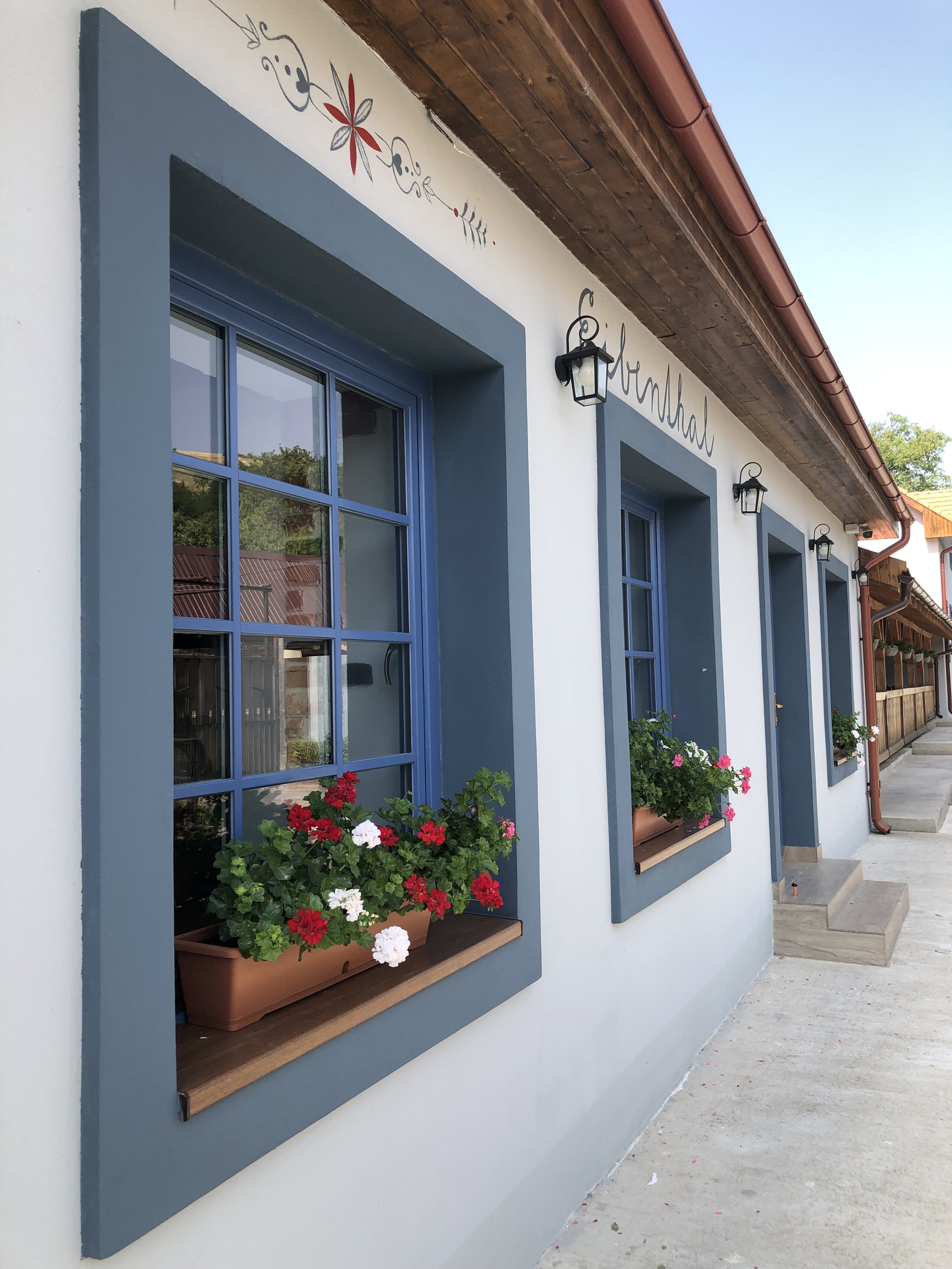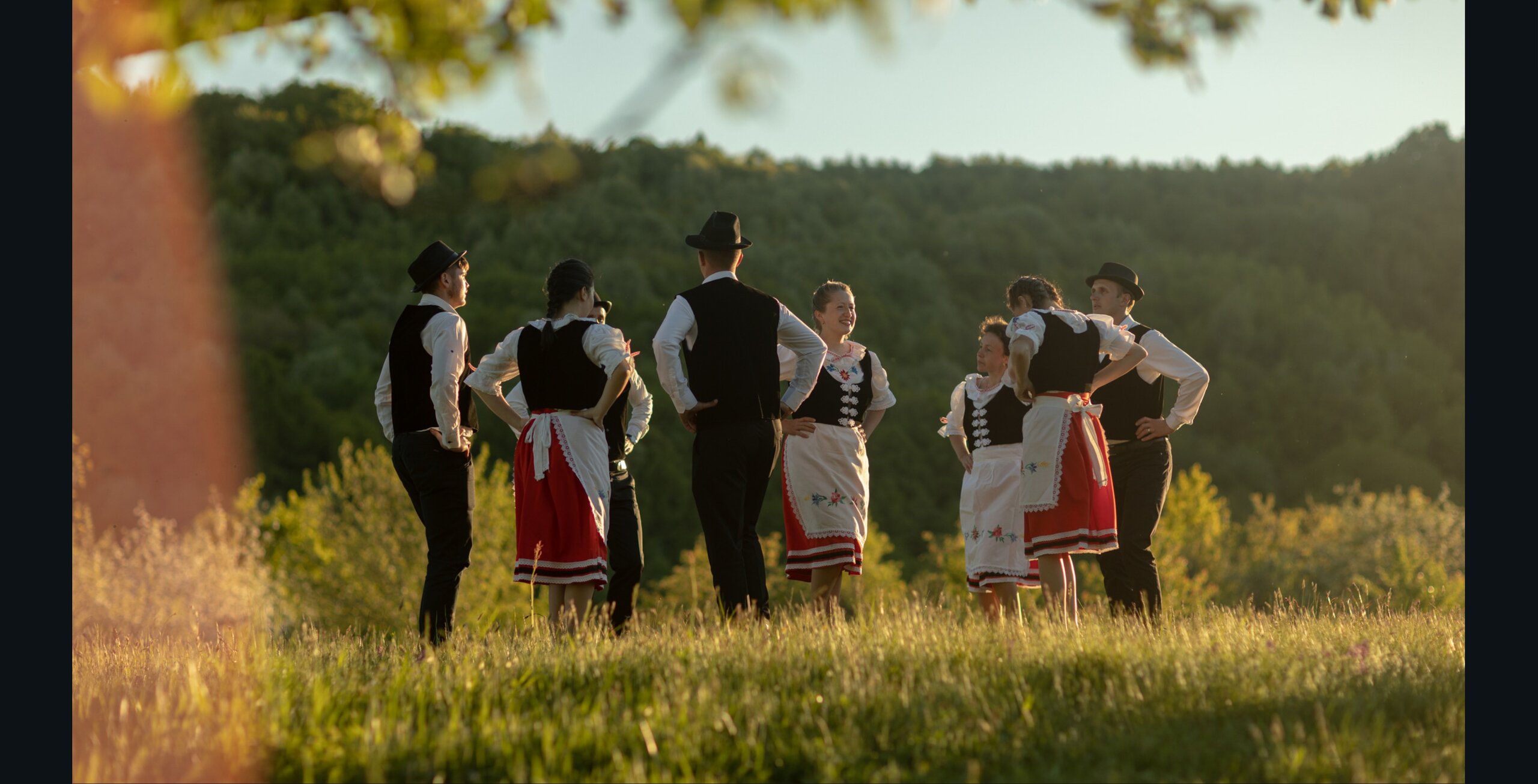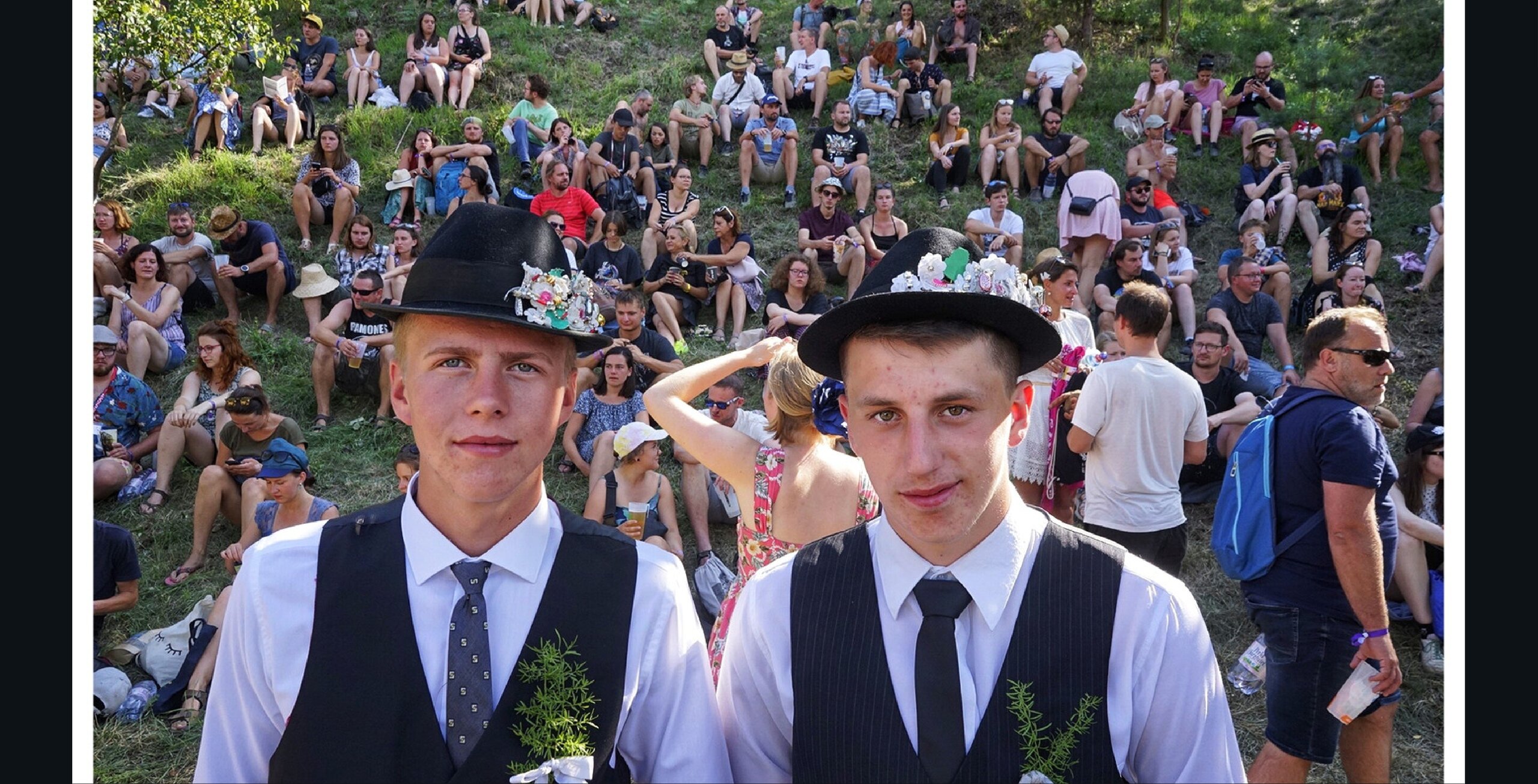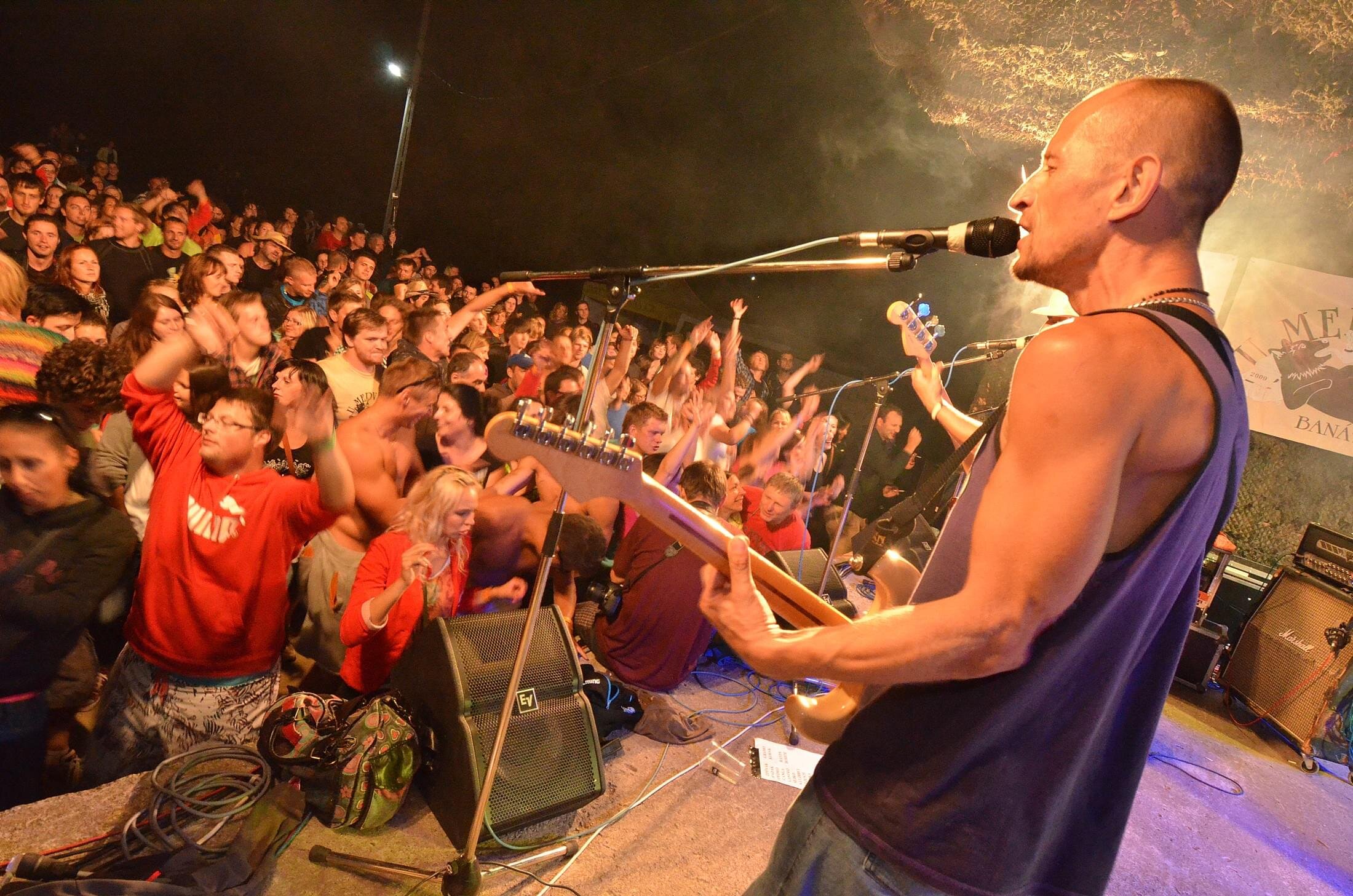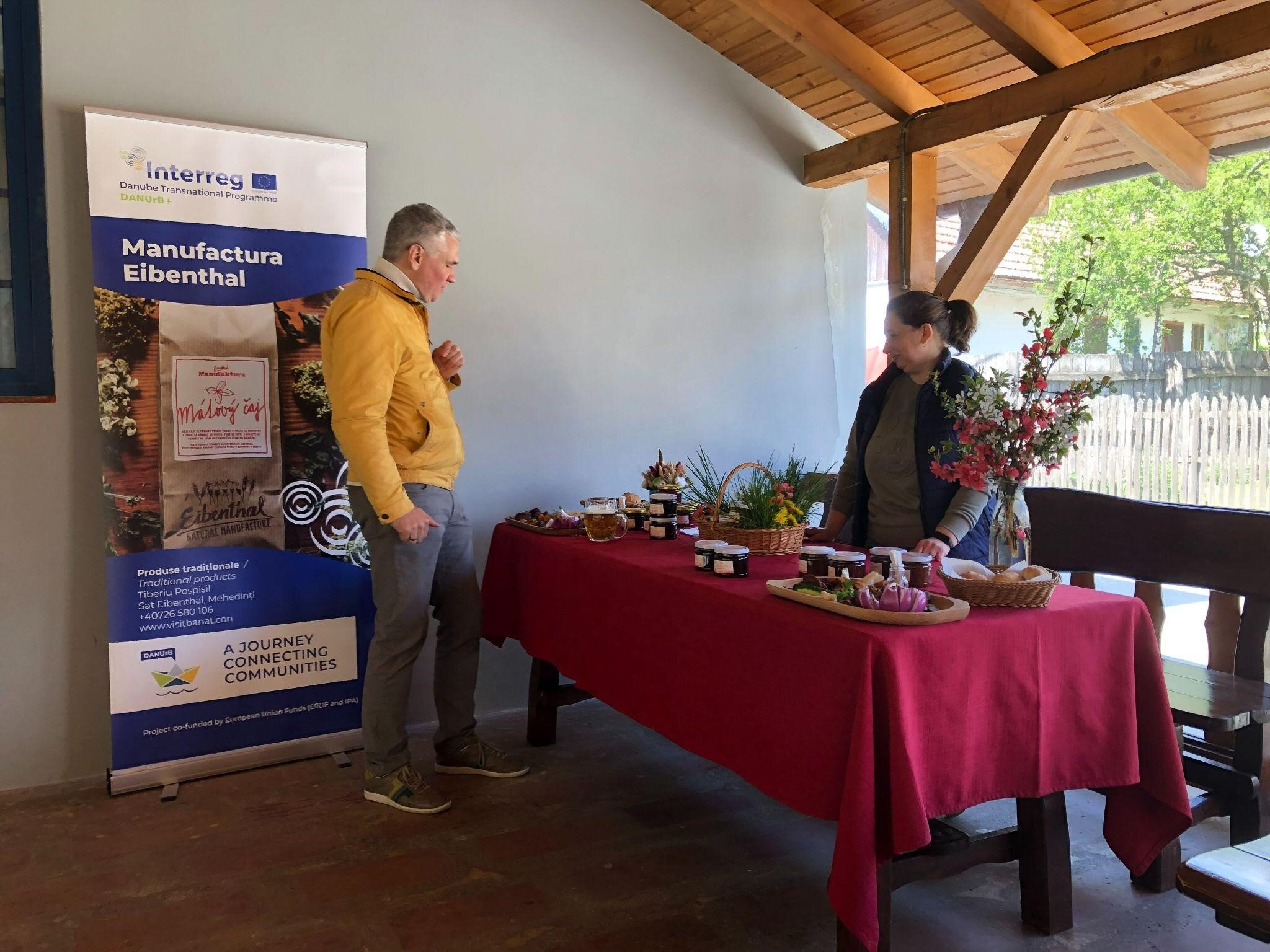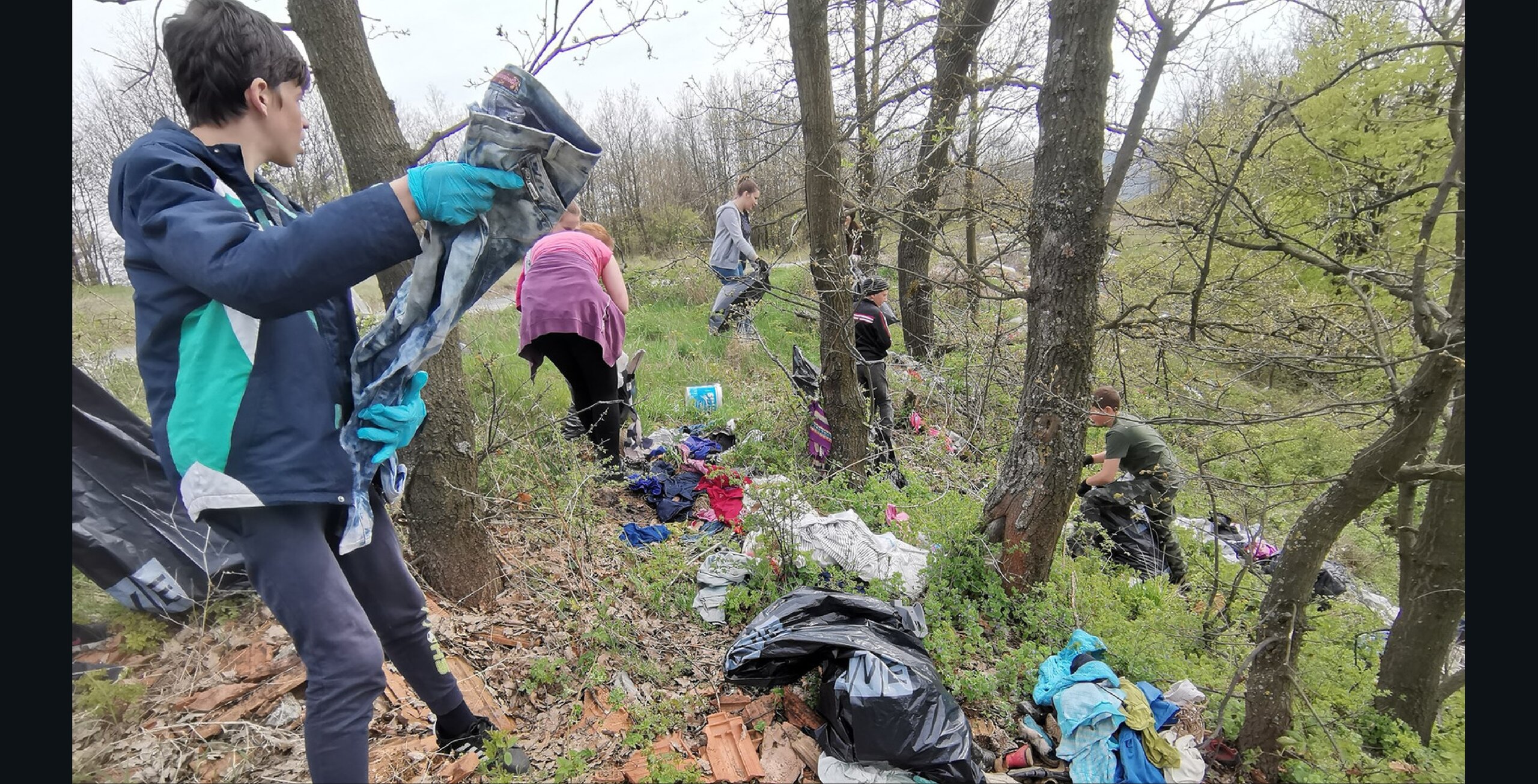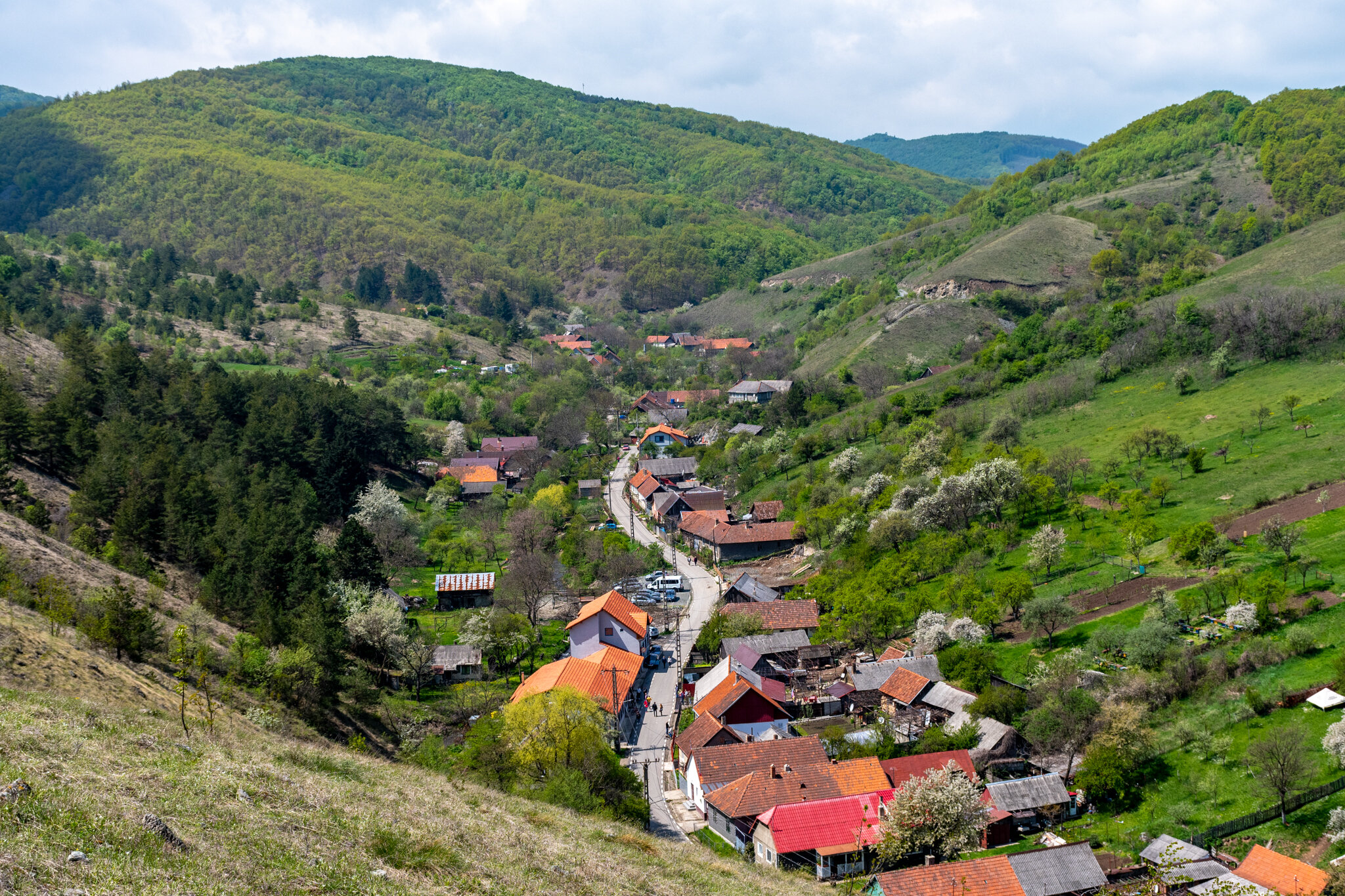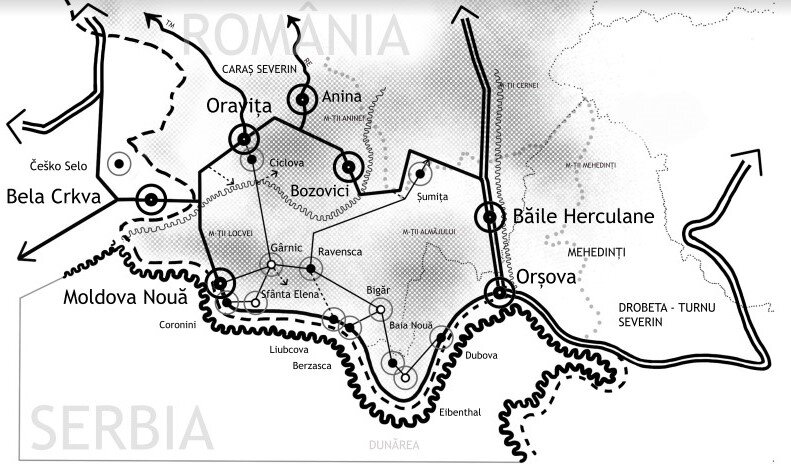Together in the Czech lands of the Almăjului Mountains
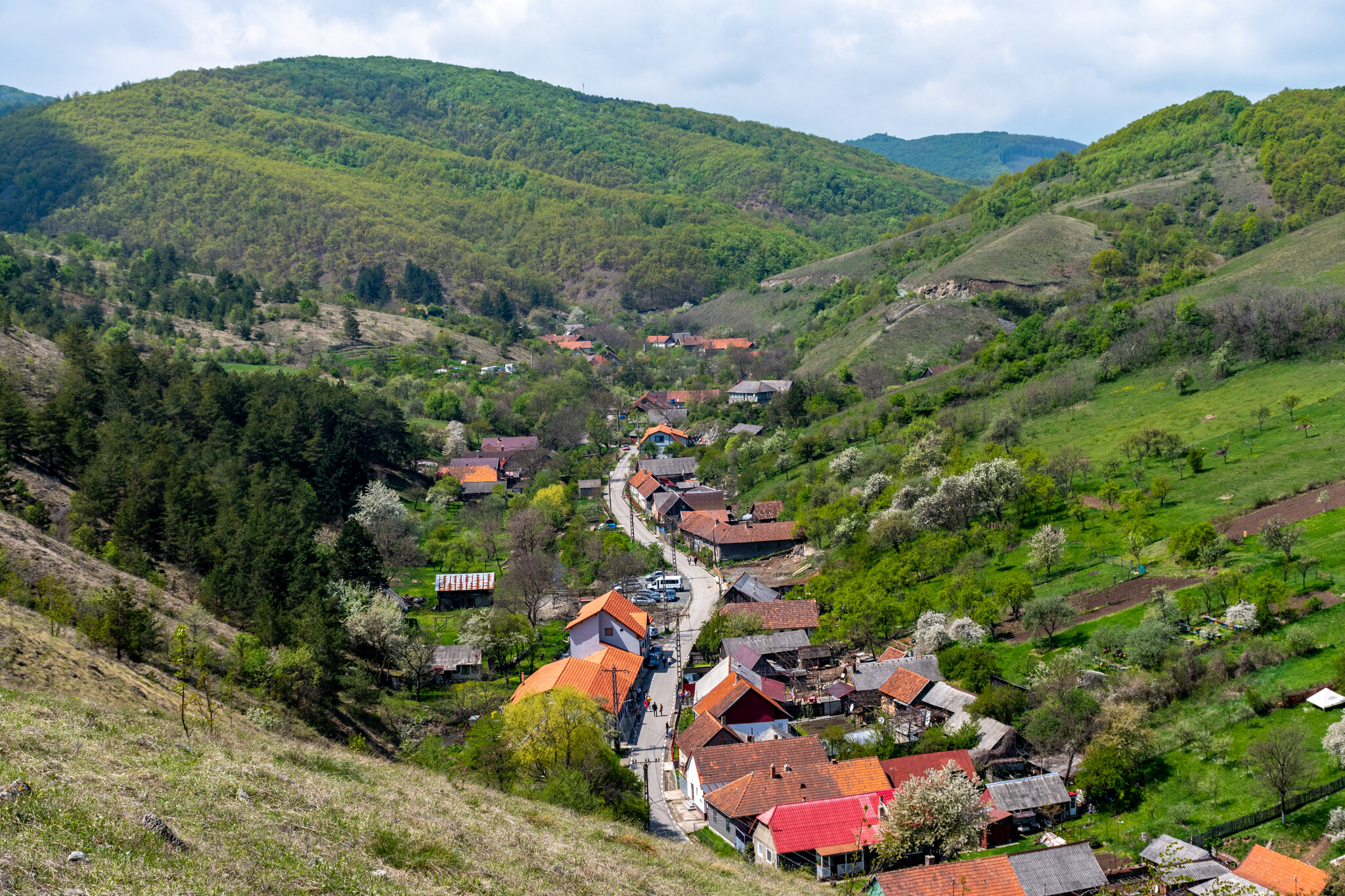
We often ask ourselves how territories can make sustainable use of the opportunities offered by tourism development in such a way that the economic impact does not affect the social and environmental balance. We are looking for examples of good practice to draw inspiration from and to refer to - both in terms of the means of implementation in practice and in terms of regulation or possible development directions. One such model can be found in the Czech communities in the Almăjului Mountains in the mountainous area of Banat - Eibenthal, a village of 249 inhabitants of ethnic Czechs, has in recent years become a reference in terms of sustainable development through responsible tourism.
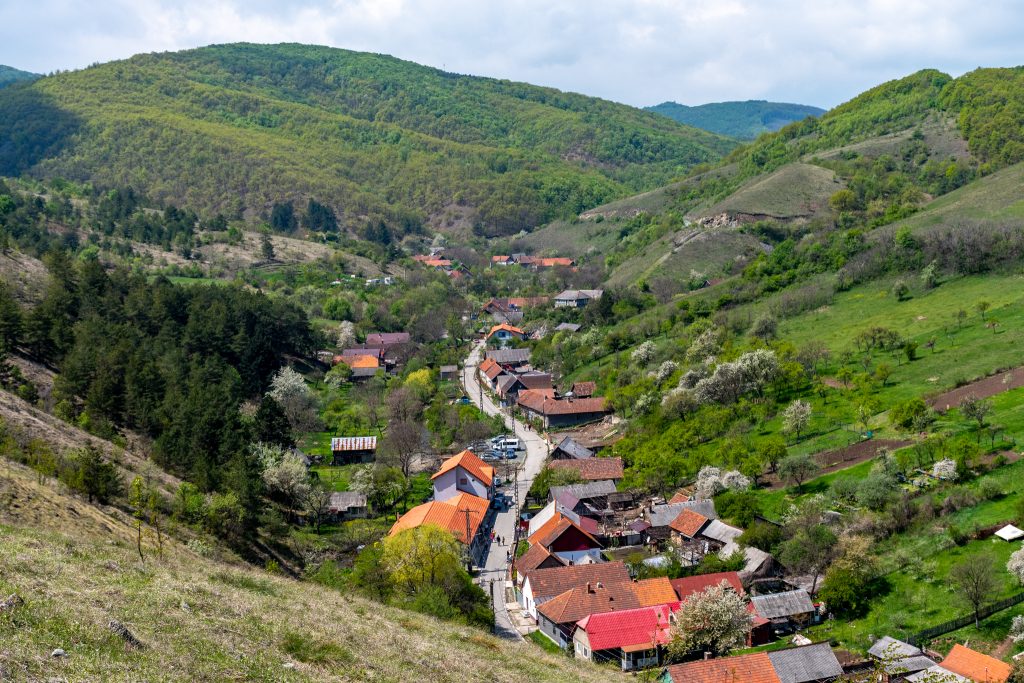
Introduction
Founded in the 19th century by Czech settlers, the village of Eibenthal and its inhabitants were severely affected after the closure of the nearby coal mine in 2006. However, in recent years Eibenthal has been going through a revival phase, with a number of projects now being developed to attract tourists, strengthen the local economy and promote local values and heritage.
From a cultural landscape perspective, Eibenthal is part of a group of villages established by Czech settlers in the 19th century near the Danube. Having similar characteristics (their geographical position - high in the mountains, the general structure and aesthetics of the built fabric, the economic profile - exploitation of local resources, community organization or specific gastronomy and customs), these settlements are characterized by a strong cultural identity, which is now being exploited for the development of responsible tourism activities. The enhancement of built and non-built heritage is thus carried out with the support of the local community, with the preservation and promotion of cultural resources being encouraged through the use of site-specific construction methods and locally sourced materials.
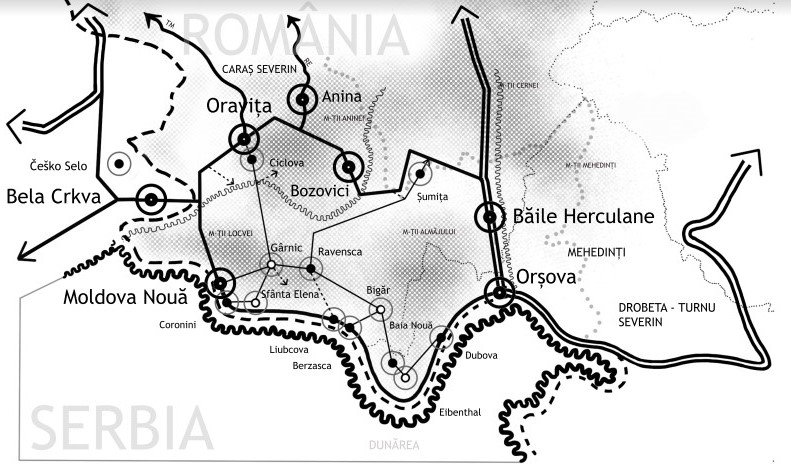
The main objectives of tourism development in Eibenthal, as an engine for rural growth, are aimed at:
- Encouraging residents (but especially young people) to stay (and even return) to the area, as well as to continue the healing process of the community, following the 2006 disaster that led to the closure of the Baia Noua coal mine;
- promoting local manufacturing, customs and products as essential components for responsible tourism and sustainable development in the area;
- the preservation of building techniques specific to the area as mediators between the built and natural environment in a rich cultural landscape.
The tourism initiative in Eibenthal consists of a number of small-scale projects, some of which have already been completed (such as the bar "U Medvěda", the Eibenthal guesthouse, the Eibenthal restaurant or the Manufaktura production cooperative). However, as it aims to create a model of sustainable development based on responsible tourism, community involvement and valorization of the local heritage, this initiative should be seen as a broader process, developing step by step, building on previous experiences in order to constantly update itself.
The commitment of the local community in the village of Eibenthal to preserve the specific character of the settlement can be seen in all the new tourism developments that have emerged here in the last 15 years. Moreover, nowadays similar initiatives are emerging in the village, following the good example of the former. The community of Eibenthal thus runs a private structure that coordinates tourists, called "U Medvěd". It is a multi-purpose space that aims to inform tourists, offer local products and promote accommodation in various structures in the village. More than a tourist information center, it aims to involve the community in all kinds of activities.
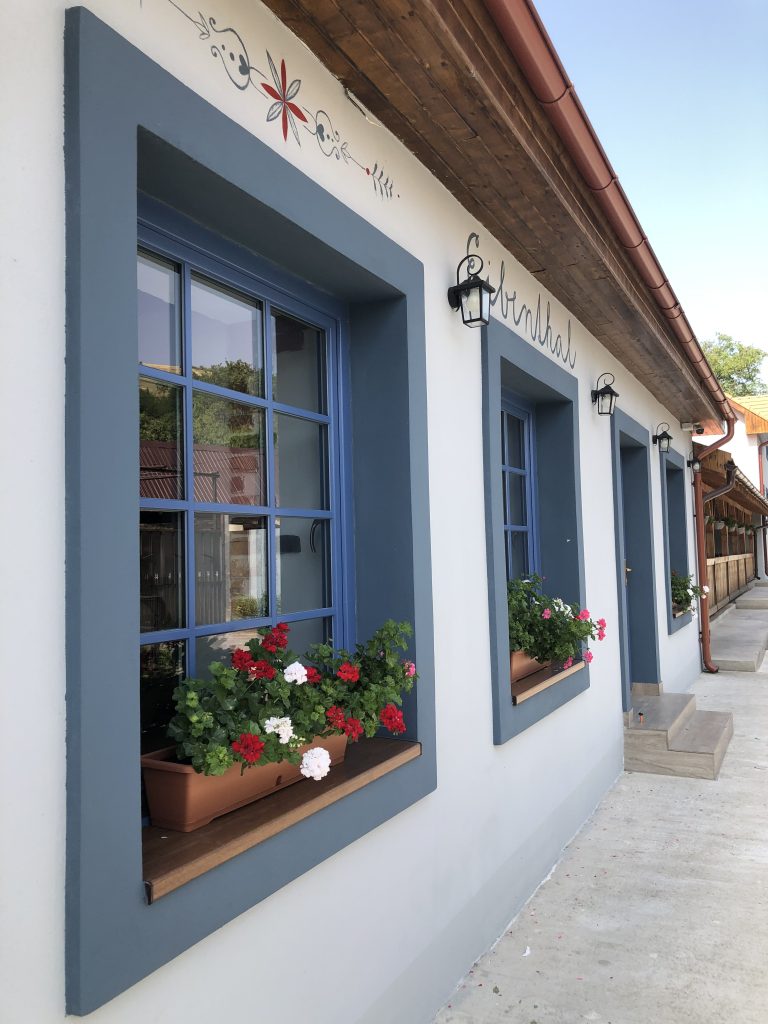
In the village of Eibenthal, you can find several accommodation options that reflect rural and local values. Adhering to the principle of using site-specific construction techniques and local materials, accommodation such as the Eibenthal Guesthouse, as well as other private dwellings open for tourism, promote the specificity of the area and thus offer authentic experiences to tourists while preserving the character of the settlement itself. Restaurant Eibenthal is another family-run business in the village of Eibenthal, offering tourists authentic experiences inspired by traditional cuisine. The menu features local dishes prepared according to traditional recipes and techniques. In addition, the community of Eibenthal has set up a cooperative for the production of culinary goods (such as cured meats, cheeses, preserves, syrups and herbal teas), which continues the generations-old practices and produces enough to cover the daily needs of the restaurant (selling the surplus to tourists).
To promote tourism in the village of Eibenthal, as well as in the surrounding area, local entrepreneurs work closely with Czech communities and organize, mainly for them, an annual festival: the Banat Festival. This event also offers dedicated transportation (from Prague to Orșova and further on to Eibenthal), which allows Czech tourists to take part in the festival. Of course, the event is open to everyone, but the connection with the home country helps to preserve the specificity of the place. What's more, the festival creates the conditions for local producers to promote their services, while receiving informal confirmation of the quality of their products from foreign customers. In this way, the village of Eibenthal helps to promote local values and practices in the area by selling (and producing) specific Czech food and drink, household goods and other products. Last but not least, in recent years the village has become a destination for school expeditions, hosting this year alone more than 20 groups of schoolchildren (aged 14-19), inviting them to explore the whole network of Czech settlements in the area.
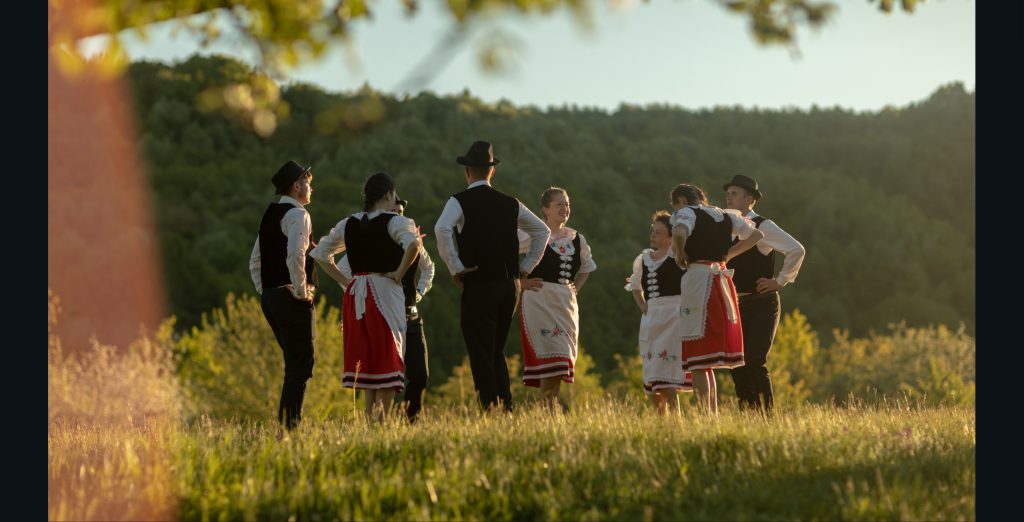
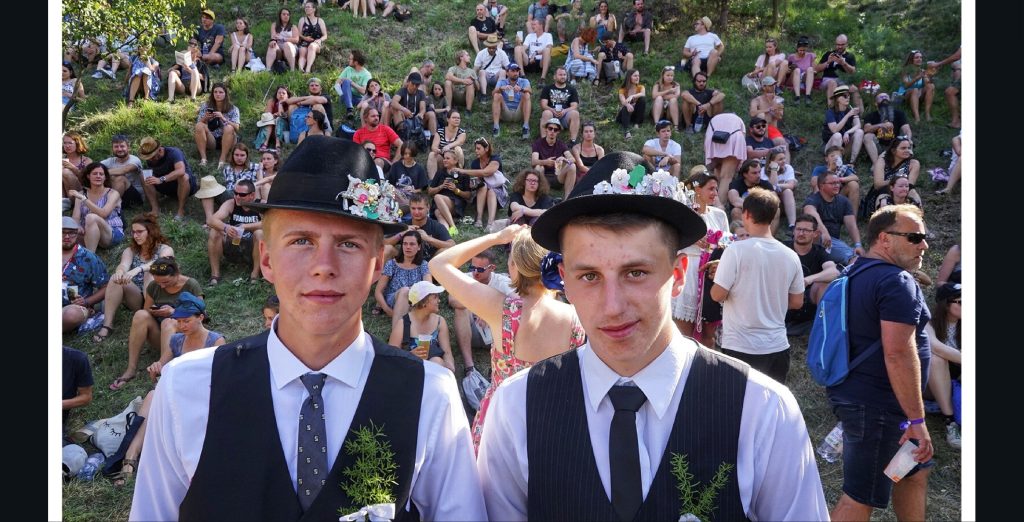
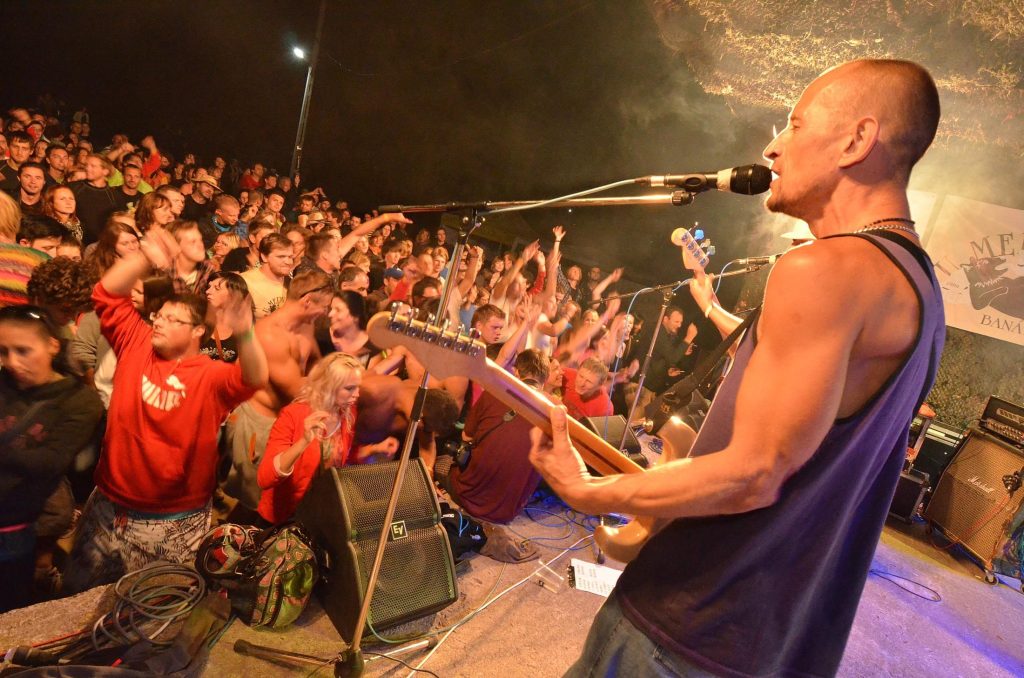
But what is truly remarkable is that all these endeavors are happening organically, as responses to concrete situations - each operation is carried out with respect for local specificity, the balance between nature and man, and the needs of the local community. Analyzing these initiatives from the perspective of agreed European principles, such as those promoted by the New European Bauhaus movement, we discover that - without intending to do so - the activities carried out by the Eibenthal community fall within theoretical boundaries, offering natural responses to current challenges.
New European Bauhaus principles: sustainability
The New European Bauhaus movement promotes sustainability, fostering economic, social and environmental resilience by striking a balance between categories of needs and developing the territory's capacity to withstand change.
From an economic point of view, the local community in the village of Eibenthal is striving to obtain funding at different levels to improve the existing tourism infrastructure. As such, the village has recently developed a new access road, a new lighting system and is promoting funding opportunities for locals in areas such as education, accessibility and tourism. At the same time, the private activities that have already been successful here (the bar "U medvěda", the Eibenthal restaurant, the Eibenthal guesthouse or the Manufaktura production cooperative) are living proof of a business-friendly environment in the village of Eibenthal. Moreover, their success encourages others to follow the same model and thus contributes to an increase in the tourist capacity of the settlement as a whole (through accommodation, services and products).
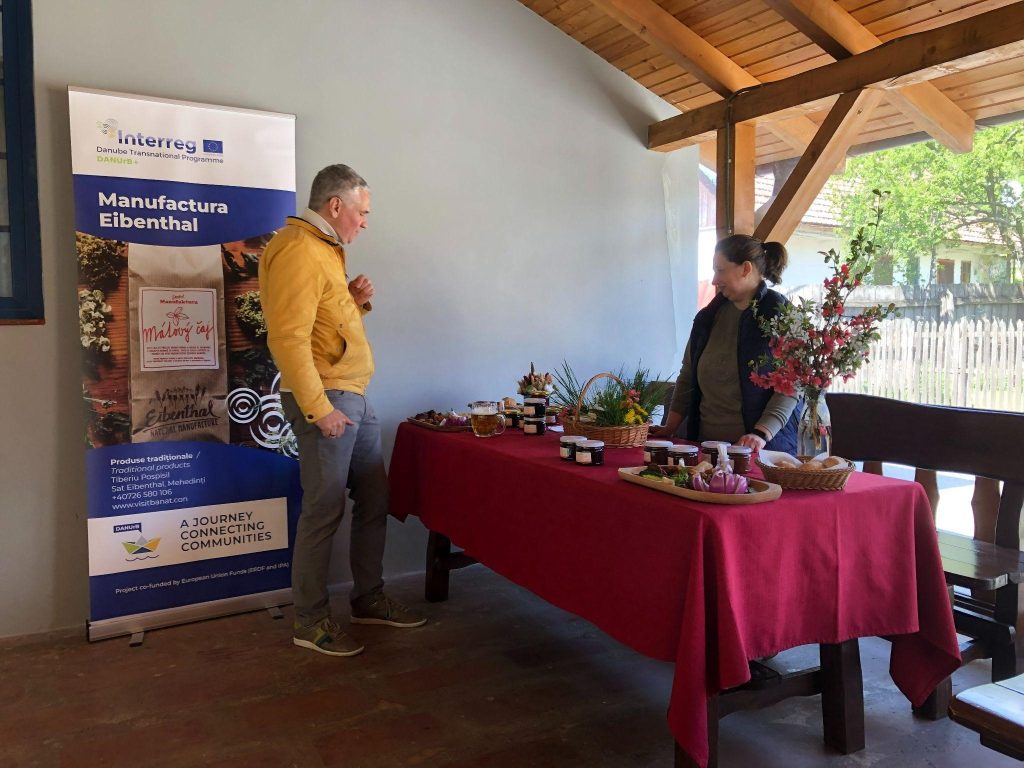
From a social point of view, although there are no official policies to encourage employment in the tourism sector in the village of Eibenthal, the examples of good practices already implemented here represent informal models of growth. Usually developed as family businesses, local tourism initiatives involve all members of a family, thus ensuring an even distribution of efforts and resources alike.
The Eibenthal community tries to promote informal integration and education policies, regardless of gender or age. Thus, the village of Eibenthal promotes education on two levels: formal and non-formal. Formal education takes place in the local school where, with the help of teachers, school curricula are updated to reflect contemporary realities and thus provide relevant skills. Non-formal and informal education takes place in the family/work environment, where the transmission of knowledge and skills on traditional crafts and customs occurs naturally and educational activities are based on cross-cutting principles such as respect for the environment, social equity and gender equality.
In terms of environmental principles, through the projects it implements, the community puts into practice a policy of efficient use of local resources. The educational programs at the village school focus on respect and protection of the environment, with climate change at the heart of the educational activities. The Banat Festival also focuses on awareness-raising activities on the quality of the natural environment, both for Romanian and Czech participants. At the same time, the transportation is sustainable: access from the Czech Republic is facilitated by a direct train called "Banat Express". Last but not least, the location of the village in the Iron Gates Nature Park allows the implementation of joint projects to inform the local community and tourists about the environmental values to be protected. The tourist activities in the village of Eibenthal are built around the motto "no plastic", with products and drinks served directly on the spot in reusable glass or ceramic containers.
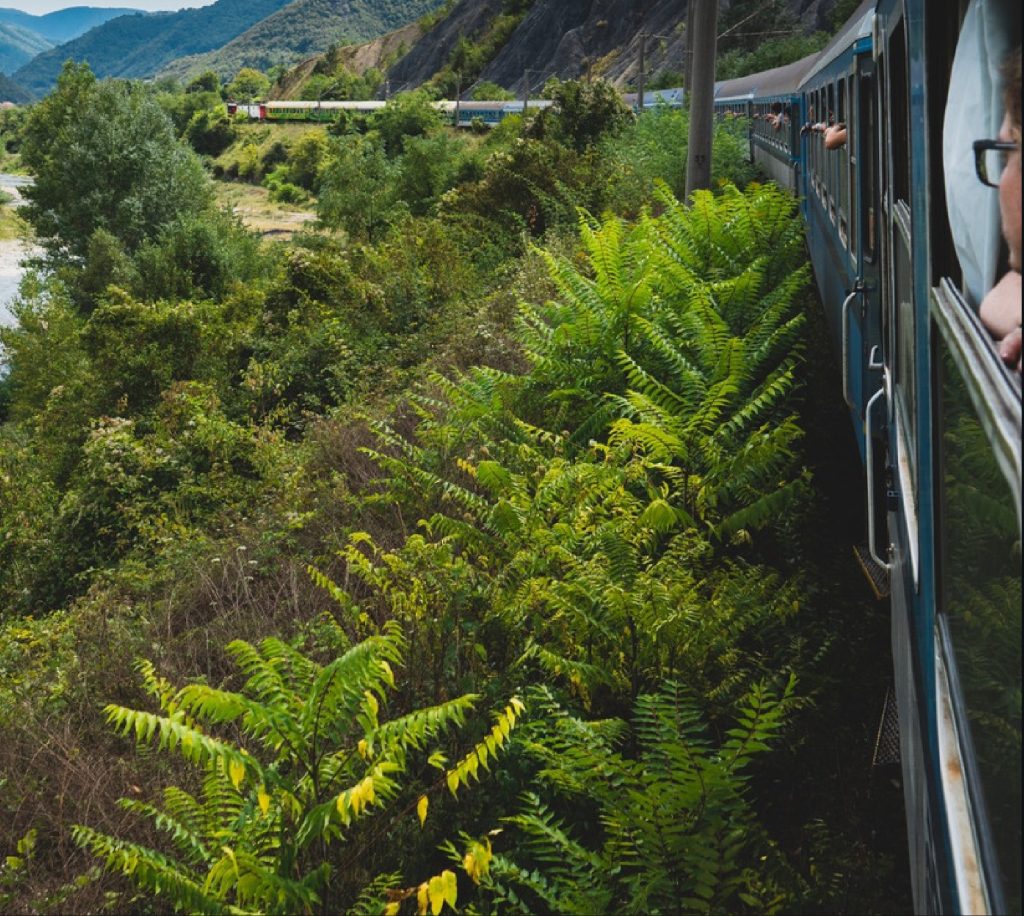
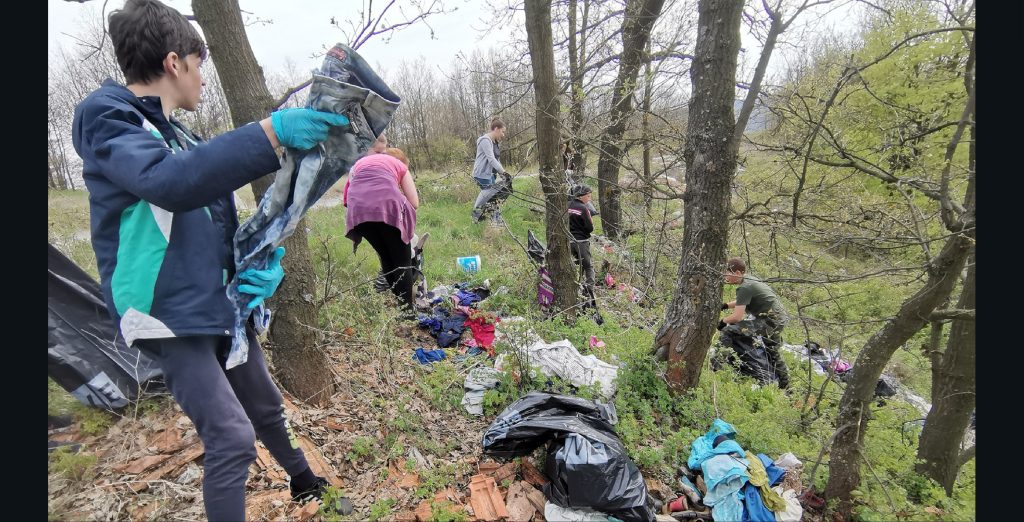
New European Bauhaus principles: aesthetics
The New European Bauhaus movement promotes aesthetics, encouraging coherent territorial development that emphasizes cultural landscapes and the specificity of each place.
The Eibenthal community initiative aims to promote aesthetics and quality of experience in the natural and cultural landscape, as well as through the enhancement of the built and non-built heritage. The village is part of the Iron Gates Nature Park, a protected area with significant natural beauty along the Danube. The settlement is surrounded by remarkable landscapes and areas of biodiversity, enhanced by the unaltered preservation of traditions, where the quality of life of the communities is the result of the economic activities of the inhabitants, carried out in harmony with nature.
The enhancement of built and non-built heritage therefore takes place with the support of the local community, through the conservation and promotion of cultural resources, such as the use of site-specific construction methods and materials. This results in more accommodation options that reflect rural and local values.
The tourist experience also involves promoting authentic values inspired by traditional cuisine and other customs. We thus see more catering facilities (a restaurant, a brewery, a cooperative for the production of culinary products) reflecting local gastronomy. Finally, local farmers and producers are included in tourist activities that promote traditional occupations, such as the regular organization of fairs.
New European Bauhaus principles: inclusiveness
The New European Bauhaus movement promotes inclusiveness by encouraging the development of cooperative relationships between and within communities, as well as the establishment of inter- and intra-community cooperation mechanisms.
Eibenthal's tourism development initiatives promote inclusion informally, through equal opportunities, caring for vulnerable populations, involving the whole community in decision-making and co-creation activities. Thus, the village seeks to promote informal inclusion and education policies regardless of gender or age. As family enterprises, the economic activities developed by the inhabitants include all members of a household, while having a significant impact on children.
The whole tourism development of the settlement is built around the specific Czech and ethnic minority character, children benefit from activities tangential to tourism through education programs and their inclusion in informal practices, and the elderly directly benefit from tourism development by promoting their core activities as the core of tourism events and experiences.
Community participation in the decision-making process implies informal tourism management actions, specific to small communities, where institutionalization and implementation of rigid policies could affect existing relations among the local population and the specificity of a place that is attractive precisely because of its naturalness. The mechanisms developed by the Eibenthal community can therefore be recognized as exceptional precisely because of their informal character. The development of tourism in the village of Eibenthal is thus the result of entrepreneurial initiatives built on community involvement in the pursuit of the common interest, with the support of local authorities limited to infrastructure projects.
In conclusion
Looking for models for sustainable tourism, the village of Eibenthal can be mentioned as a good example. By following the principles of the New European Bauhaus in all activities undertaken, the community revitalization project is generating more and more interest. Promotion through international projects (such as the INTERREG DANUrB+ or MOMAr projects) have brought validation from a scientific perspective, which lends added credibility to the initiative of the small community in the Almăj Mountains.
Bibliography
Candidature for the competition "Best Tourism Villages" - World Tourism Organization (2022)
Application for the European New Bauhaus Awards - "Champions" section (2023)
Action Plan for a better performing Danube Region. Drobeta-Turnu-Severin and the Danube localities of Mehedinți (2022, realized by UPT in the framework of the DANUrB+ transnational cooperation project)

